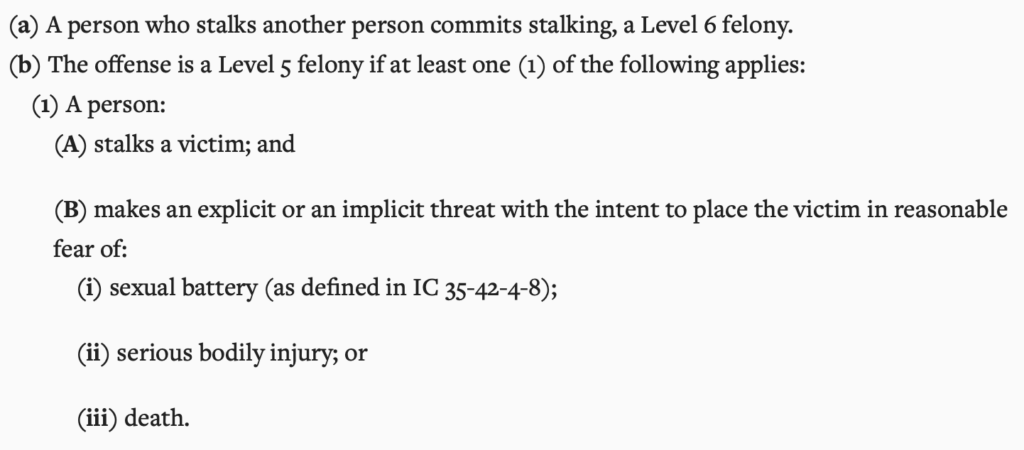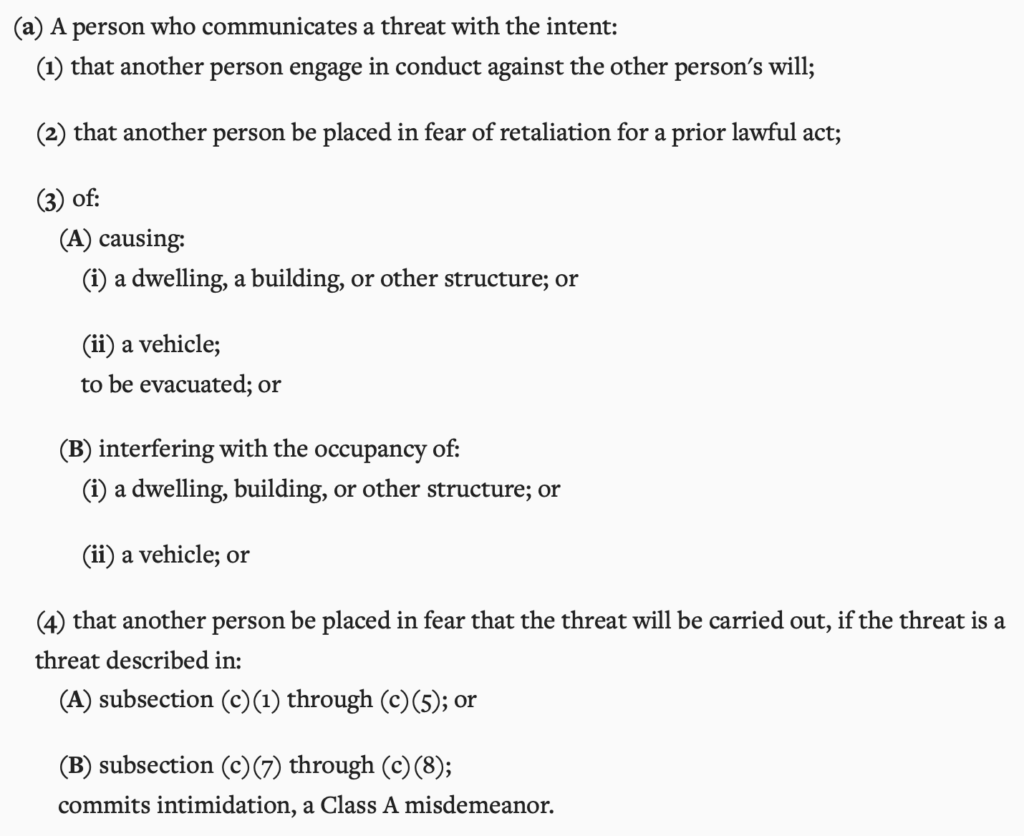Is Doxxing Illegal In Indiana?
Laura Martisiute
Reading time: 6 minutes

Table of Contents
If you live in Indiana and have had your information shared online without your permission, you may be wondering: Is doxxing illegal in Indiana?
In this guide, we’ll review the legality of doxxing in the state and look at doxxing-adjacent criminal activities.
Is Doxxing Illegal in Indiana?
Doxxing, which refers to the unauthorized publication of someone else’s personal information, is not explicitly illegal in Indiana. However, many activities that can result from doxing are illegal in the state.
Doxxing Related Activities That Are Illegal in Indiana
Although Indiana doesn’t have any laws that specifically protect against doxxing, doxing might lead to certain activities that are illegal in Indiana, including harassment, criminal stalking, intimidation, and more.
Harassment
If someone repeatedly contacts you (via the phone, mail, or online messaging) with the goal of harassing you or annoying you, they may be found guilty of harassment (Ind. Code § 35-45-2-2) in Indiana.

In Indiana, harassment is a Class B misdemeanor, translating to up to 180 days in jail and a fine of up to $1,000.
Criminal stalking
Stalking (Ind. Code § 35-45-10-5) is illegal in Indiana and is considered a Level 6 felony, with between 6 months and 2.5 years in prison and up to a $10,000 fine.
If the stalking comes with the threat of violence or death or violates a restraining order, it’s a Level 5 felony, coming with between one to six years in prison and/or a fine of up to $10,000.

Lastly, the charge is elevated to a Level 4 felony if the offender uses a deadly weapon while stalking someone, amounting to between 2 and 12 years in prison and up to a $10,000 fine.
Intimidation
When someone threatens to force you to do something or threatens to retaliate against you for something, it’s considered intimidation (Ind. Code § 35-45-2-1).

Intimidation is a Class A misdemeanor in Indiana and comes with up to one year in jail and up to $5,000 in fines.
If the perpetrator threatens to commit a felony, or if they issued the threat using the electronic equipment of a school or government entity, they’ll be charged with a Level 6 felony instead, amounting to between 6 months and 2.5 years in prison and/or up to a $10,000 fine.
When a deadly weapon is involved in the threat, it’s a Level 5 felony, equating to between 1 to 6 years in prison and/or up to $10,000 in fines.
False reporting
One of the more dangerous activities related to doxxing is swatting, which occurs when someone who has your home address makes a call to law enforcement to give a false report about a violent crime happening there.
This typically prompts an emergency response from law enforcement, which has been fatal for unsuspecting victims in the past.
In Indiana, false reporting (Ind. Code § 35-44.1-2-3) is a Class B misdemeanor punishable by up to 180 days in jail and a fine of up to $1,000.

If a victim is harmed as a result of the false report, the charge escalates to a Class A misdemeanor (amounting to up to one year in jail and a fine of up to $5,000) or a Level 6 felony (penalized by between 6 months and 2.5 years imprisonment and up to $10,000 in fines depending on the circumstances).
If the swatting victim dies, it’s a Level 5 felony, resulting in between 1 to 6 years in prison and up to $10,000 in fines.
Residential entry
If someone knows where you live, they can break into your home.
In Indiana, this is charged as a residential entry (Ind. Code § 35-43-2-1.5), a Level 6 felony with between 6 months and 2.5 years in jail and/or up to a $10,000 fine.

Identity deception
Someone who uses your personal information to impersonate you is committing identity deception (Ind. Code § 35-43-5-3.5) in Indiana.

In most cases, this is charged as a Level 6 felony, resulting in between 6 months and 2.5 years in jail and/or a fine of up to $10,000.
The charge increases to a Level 5 felony if there are more than 100 victims, if the financial value involved is more than $50,000, or if an underage victim is involved. In those cases, there’s an ensuing penalty of between 1 to 6 years imprisonment and/or a fine of up to $10,000.
Is Doxxing Illegal at the Federal Level?
There is no law against doxxing at the federal level unless it pertains to the unauthorized sharing of restricted information about protected persons. In most cases, however, there is no federal protection against doxxing.
Some states, including California, Arizona, and Illinois, are implementing anti-doxxing laws to protect their residents.
Regardless of whether you’re legally protected against doxxing or not, you should take care to make yourself as undoxxable as possible to prevent doxxing and the crimes associated with it from happening in the first place.
How to Protect Yourself Against Doxxing In Indiana (And Elsewhere)
To make yourself undoxxable, you must reduce your online footprint as much as possible.
An effective way to do so is to dox yourself (find out how in our guide to self-doxxing using this list of doxxing tools). This will tell you where your information appears online.
In most cases, shrinking your online footprint will involve:
- Changing your privacy settings on social media platforms (including Facebook, Instagram, and LinkedIn) to prevent the general public from seeing your posts and biographical details.
- Opting out of data brokers. These companies sell your personal information to any interested third parties for a nominal fee. Keep in mind that you’ll need to repeat the process more than once, as data brokers notoriously reactivate profiles when new information is found. You can also subscribe to a data broker removal service such as DeleteMe to handle this process for you.
- Using different usernames on all of your accounts to prevent bad actors from following you (here’s how someone could doxx you on Instagram).
- Removing your data from Google products, including Search and Maps.
- Sharing less information online.
Want to learn more? Read our guide on how to prevent doxxing.
Our privacy advisors:
- Continuously find and remove your sensitive data online
- Stop companies from selling your data – all year long
- Have removed 35M+ records
of personal data from the web
Save 10% on any individual and
family privacy plan
with code: BLOG10
news?
Don’t have the time?
DeleteMe is our premium privacy service that removes you from more than 750 data brokers like Whitepages, Spokeo, BeenVerified, plus many more.
Save 10% on DeleteMe when you use the code BLOG10.

















